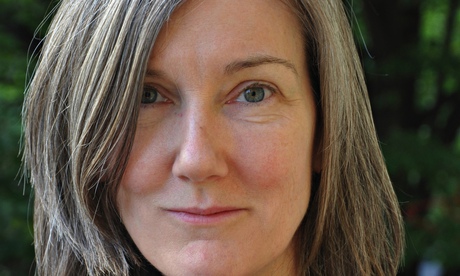
Fifty years into a life of improbable unorthodoxy, Nell Zink finds herself laurelled by an establishment she doggedly ignored for decades. Her two novels, The Wallcreeper and Mislaid, will be published in Britain next month after eliciting praise and astonishment in the US.
Her debut, The Wallcreeper, features a spectacularly ill-matched American couple, Tiffany and Stephen, whose misadventures take in sex, drugs and eco-terrorism. The New York Times lauded it as “a very funny, very strange work of unhinged brilliance” and it was among several publications to declare the novel 2014’s best literary debut.
Zink, 51, grew up in rural Virginia and her CV includes “bricklayer” and “noise band guitarist”. She lives in Bad Belzig, a very small town in north-east Germany, from where she can presumably view the fuss around her sudden literary career from a safe distance.
As a precocious and unhappy child, Zink resolved to “[pitch] my tent outside the folds of humanity”. She has stayed there, it seems, ever since. After attending the College of William and Mary in Virginia, she had a brief spell of homelessness before moving to Philadelphia, where she published a fanzine titled Animal Review in which musicians wrote about their pets. It featured, for example, King Crimson guitarist Robert Fripp paying tribute to his rabbit, Beaton Bunnerius Bun.
She had been writing fiction since she was a child, but for 15 years her readership numbered precisely one: the Israeli writer Avner Shats, with whom she struck up an epistolary friendship after her then-husband, Zohar Eitan, a poet, composer and lecturer at Tel Aviv university, introduced them.
In 2010, she wrote a letter to fellow birder Jonathan Franzen in response to a New Yorker piece he wrote about the illegal hunting of songbirds. Franzen was so charmed by her erudition and the strange dazzle of her prose that he correctly suspected her to be a writer of fiction.
A correspondence ensued and by 2012 he had convinced her to send him her collected manuscripts. Soon afterwards, he became a vocal advocate of her work, to her bemusement.
As she put it in a recent New Yorker magazine profile: “I was hailed on my life raft by the passing container ship Franzen.”
Eventually, Franzen’s agent secured Zink a six-figure deal for Mislaid, a provocative, cunningly hilarious novel that begins with the coupling of a teenage lesbian, Peggy, and Lee Fleming, a male poet and professor who is “queer as a three-dollar bill”. Peggy, a white woman, gives birth to a daughter and runs away with her, disguising themselves, in official papers at least, as African Americans.
The Washington Post called it “a subversive minstrel show sprung from an encyclopedic mind drunk on the Mad Hatter’s tea”.
Zink explained: “I was so tired of Franzen saying that I should take myself seriously as a writer and I wanted to make very clear that there’s a very clear distinction between taking your career seriously and taking your writing seriously.”
So she wrote most of The Wallcreeper, she said, “in four days, to show him that I knew what I was doing as a writer”.
Now he knows – as do the rest of us.

